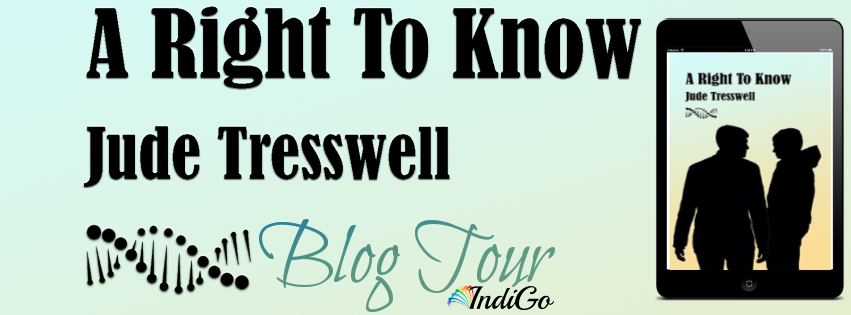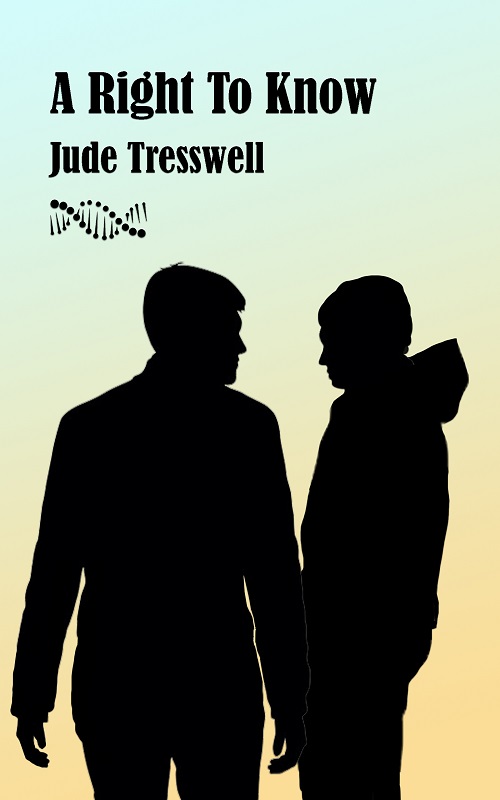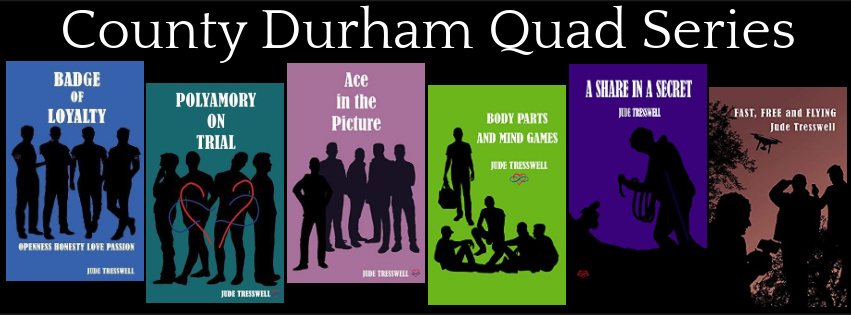GUEST BLOG 9: the inspiration for A Right To Know
The stories are fictitious, but they always spring from a real event that preys on my mind or captures my imagination. Part of the inspiration for A Right To Know was something that happened to me last Christmas.
I know nothing about my father. I’ve never really wished to learn about him. Occasionally, some query or other will enter my head, but it stays only briefly. I’ve always felt that I’ve better things to do than think about a man I never knew who, probably, knew nothing about me and who, given my own age, is very likely to be dead. Even if I’d wanted some answers, there was no one I could question. There were rumours, but…
So what happened last Christmas? My son had an ancestry test. In UK parlance, I was gob-smacked. Stunned and totally dismayed. It seemed that the rumours were true. I discussed the results with my daughter. She completed a test, one that was issued by a different company. There were some minor variations, but the major results were the same. The rumours were true.
There’s more to this saga than I can offer here. I know you will excuse my reluctance to offer details. I was really thrown, though.
In A Share in a Secret, the series’ Book 5, I’d included the following dialogue, Mike speaking:
“Phil’s fathered children. There are probably lots of little Phils runnin’ around the North East. Or carefully walkin! No, that was cruel! Phil’s great.”
Nick laughed, agreed and then said, “Sperm donation?”
I thought about it. Logistically, it would work. Phil’s a little older than the other guys. He could have a teenage son and, if he did, his husband, Raith, would be…well, he’d be Raith and there would be trouble. Raith wouldn’t be able to handle the news. I knew that I had the relationships-basis of a story. It wasn’t hard to hang a mystery on it. That had a link with my own experiences, too, and a trigger warning is needed: the plot involves parental suicide.
Having said all that, A Right To Know is not a #own voice book. For a start, Lewis, Phil’s son, doesn’t locate Phil via an ancestry test. It’s not a miserable story, either; I always have some fun writing the Quad. I hope you enjoy reading it. Thank you for the opportunity to say a little about its background,
Jude
Title: A Right To Know
Series: County Durham Quad 7
Author: Jude Tresswell
Publisher: KDP
Release Date: 31st July 2021
Heat Level: 2 - Fade to Black Sex
Pairing: Male/Male Menage
Length: 57300
Genre: Mystery, asexual/sexual relationship, family drama/biological father, polyamorous relationship
Add to Goodreads
Synopsis
“A son! A child! How? Why? Fuck! Phil! You can’t have! And does this sperm-child want to see you?”
Abandonment, trust, suspicion and compromise—integral parts of a mystery that involves industrial espionage, sperm donation and coming to terms with oneself and the truth.
Sperm donors know that now, under UK law, offspring who reach eighteen have the right to learn a donor’s identity and last known address, but Phil Roberts donated before the law was changed. He is shocked and dismayed to learn that he has a son called Lewis who intends to visit. Phil’s husband, Raith, is furious—and very scared.
What does Lewis Lennon really want? The man he has always called ‘dad’ is dead. Was his death suicide or was he murdered? Lewis wants Phil to find out. So, Phil, Raith, Mike and Ross, the County Durham Quad, plus their special friend, Nick, are embroiled in another investigation, but, as always, their relationships come under scrutiny too.
Excerpt
Phil sat at the big kitchen table. His beard, neatly trimmed as always, failed to hide the lack of colour in his face. He looked shocked. He was holding a letter.
“You alright, Phil?” Mike was puzzled and concerned. “Bad news?”
“Not ‘bad’ exactly. Unexpected. Very.” He sighed. “I’ve an eighteen-year-old son. Sperm donation.”
Raith, Phil’s husband, dropped the glass of juice he was drinking. It rolled off the table and smashed as it hit the floor.
“A son! A child! How? Why? Fuck! Phil! You can’t have! And does this sperm-child want to see you?” Raith snatched the letter from Phil’s hands. “I can’t read this fucking stuff; it’s in joined-up. Why didn’t he type it?”
“He probably felt that this was more personal,” Mike suggested, retrieving the letter from the floor where Raith had slung it in disgust and shaking it free of orange juice.
“It’s fucking personal alright. You always said they couldn’t identify you, Phil. What the fuck’s gone wrong?”
“It looks as though we might find out,” said Ross, the fourth member of the quad. He was reading the letter over Mike’s shoulder. “He intends to visit. I think we need to talk.”
***
Mike, Ross, Raith and Phil, four men who shared a home in Tunhead, a tiny hamlet in the Durham hills. Tunhead derived its name from Tun Beck, a little stream that flowed into the larger River Wear. Tun Beck lent its name to BOTWAC too—the Beck on the Wear Arts Centre. Ross managed BOTWAC, Raith provided paintings and ceramics and Mike carried out the maintenance. Phil was the only one whose work was separate. He was a surgeon at Warbridge Hospital, an hour’s drive away and, in a sense, his medical background was the cause of the morning’s shock announcement. The four of them talked about the news that evening.
“You knew I’d donated sperm, Raith.” Phil had always made it clear that when he was a medical student, like many others on his course, he had donated both for research and for procreation.
“I know that, but you’d always done it anonymously. You said so, and you never did it after they changed the law.”
Raith was referring to a change that occurred in 2005 regarding data held at UK fertility clinics. At licenced clinics, that is. Prior to the change, offspring conceived by sperm or egg donation could learn some information about their donor when they reached sixteen, but what was released was very general. If donors wished to remain anonymous, they could do so. From 2005, though, anonymity was lifted. Sixteen was still the age of release of the ‘non-identifiable information’, but at eighteen, offspring conceived by donation had the right to be told their donor’s name and date of birth and, also, their donor’s last known address.
“I didn’t donate after two thousand and five. I think I’d know if I did.”
“Sperm can be frozen though, can’t it, Phil? Perhaps it was used after the change was implemented.”
“Only for another year or so, Ross, and under the old anonymity rules. There was a transitional period but, after that, sperm could only be used in exceptional circumstances. To create a sibling, for example. I remember being contacted about it. I had the option of… going public, if you like, but I chose not to do so. I didn’t want…I didn’t want a child, well, not one that I’d feel some responsibility for. I suppose, if I’m honest, I did want to pass on my genes, have that sense of immortality—I knew it was unlikely that I’d ever father a child with a woman. I just wanted to… be helpful, I suppose. I gave a brief self-description at the time, but the details would apply to thousands of people: eyes, hair, height, weight, ethnicity. Even if you narrowed the count with ‘student medic’ and my year of birth, you’d still be talking hundreds. I was careful not to leave traces.”
“How thoughtful of you!”
“That’s not helpful, Raith.”
Ross chastised gently but, tonight, too harshly for Raith.
“Helpful! It’s not help Phil needs—it’s a fucking vasectomy, but he’s eighteen years too late. I’m going up.”
No hugs, no kisses—the little goodnight habits that told the men that they were loved and cared for and cared about. Just “I’m going up” and heavy footsteps on the stairs.







Thank you for the opportunity to tell your readers a little about myself and my books - Jude
ReplyDelete